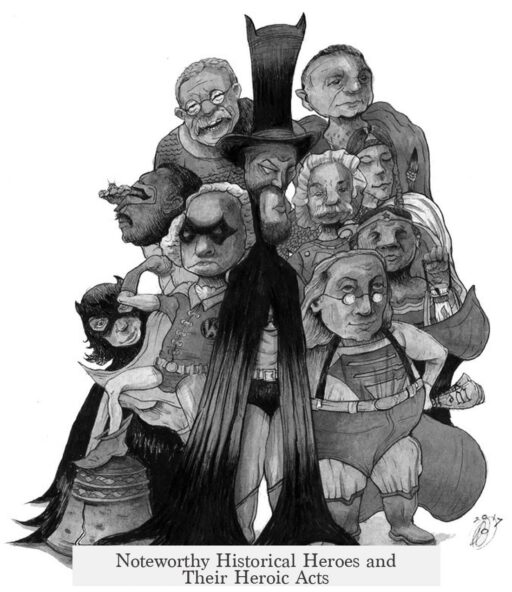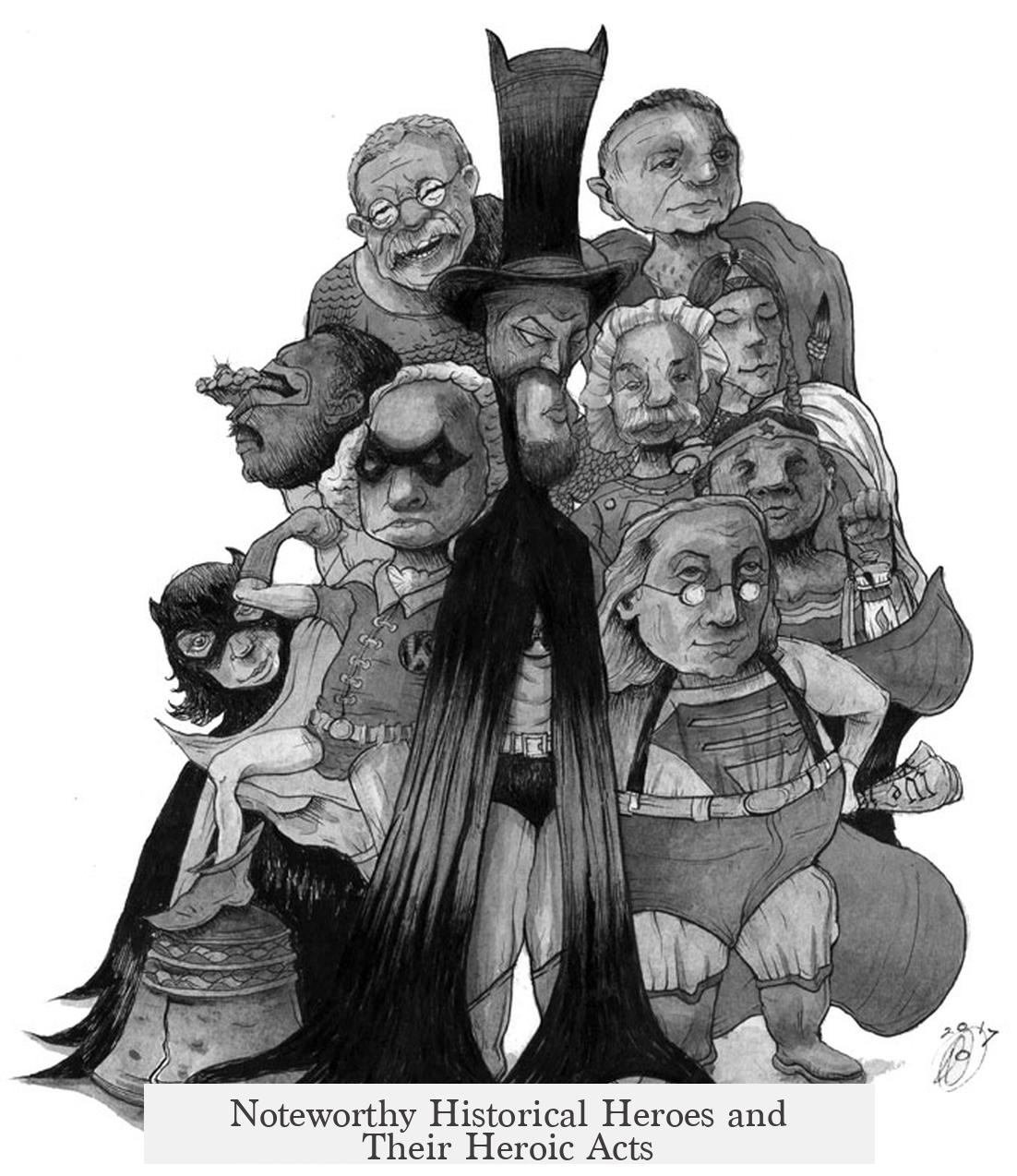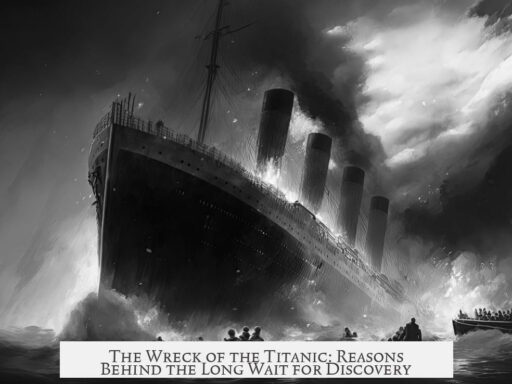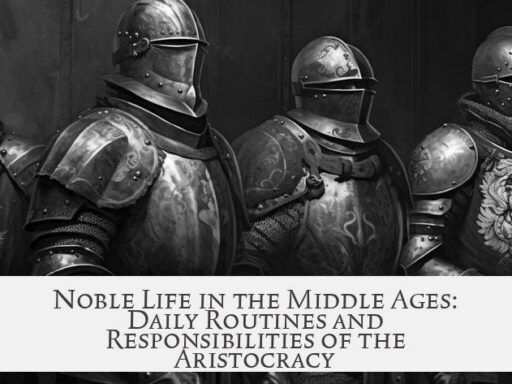Several historical figures have displayed extraordinary heroism through acts of sacrifice, leadership, and moral courage that shaped their eras and impacted the future.
During the Siege of Leningrad in World War II, the scientists at the Russian Plant Institute demonstrated unmatched bravery. The Nazis encircled Leningrad, starving its population for nearly two years. These scientists maintained the world’s largest grain seed bank. To protect this vital resource, they sealed themselves in a vault, resisting starvation. Despite the agony, they chose to preserve the seeds, ensuring that future generations might recover from famine. By 1980, roughly 80% of Russian agriculture traced back to this preserved seed bank, highlighting their sacrifice’s lasting impact.
Another remarkable hero is Saif Al-Deen Qutuz, the 13th-century Mameluke leader of Egypt. When the Mongols invaded the Middle East, devastating Baghdad and Syria, Egypt stood alone as the last Muslim power opposing them. Despite Hulegu Khan’s threats and demands for surrender, Qutuz executed the Mongol envoys and publicly displayed their bodies as defiance. He then swiftly gathered his military council, imposed a war tax starting with himself and the nobles, and led the army against the Mongols. During the Battle of Ain Jalut, when his forces wavered, Qutuz removed his helmet to rally his troops, famously shouting “For You Oh Islam,” and charged the front lines with his bodyguard. His bold leadership and courage halted the Mongol advance into Egypt, marking a pivotal moment in history.
John Laurens also embodies heroic qualities, especially for his progressive stance during the American Revolutionary War. Laurens formed the first all-black battalion with the intention of granting freedom to enslaved men who fought. Though he died before realizing this goal, Laurens challenged prevailing social norms by advocating for African-American soldiers’ rights in a deeply prejudiced era.
The Native American leader Tecumseh is notable for his military and political heroism during the early 19th century. As a Shawnee chief, he united various First Nations tribes into a confederacy tasked with resisting American expansion into Aboriginal lands. Tecumseh allied this confederacy with the British during the War of 1812, demonstrating strategic foresight and courage in defending indigenous sovereignty. His efforts underscored resistance to colonization and underscored the struggle for indigenous rights and land.
Modern history also honors Stanislav Petrov, a Soviet military officer credited with preventing nuclear catastrophe. In 1983, automated systems falsely reported incoming U.S. missiles. Despite strict orders to respond, Petrov judged the alarms as errors and refrained from launching a retaliatory strike. His decision directly averted what could have escalated into nuclear war. Petrov’s calm judgment and willingness to face potential punishment exemplify moral courage during tense Cold War moments.
These heroes share traits of sacrifice, leadership, and moral conviction in crises:
- Scientists at Leningrad sacrificed their lives to preserve the future of agriculture amid starvation.
- Qutuz displayed defiance and tactical leadership that stopped the Mongol invasion.
- John Laurens championed the cause of freedom for enslaved soldiers during revolution.
- Tecumseh united indigenous peoples against colonial encroachment and aligned strategically in war.
- Stanislav Petrov made a critical decision that prevented nuclear conflict.
Each act of heroism arose in extreme conditions. These individuals faced existential threats and chose actions benefiting others or future generations. Their legacies provide powerful examples of courage, sacrifice, and resilience.
Who Were Some Noteworthy Heroes in History, and What Did They Do That Was Heroic?
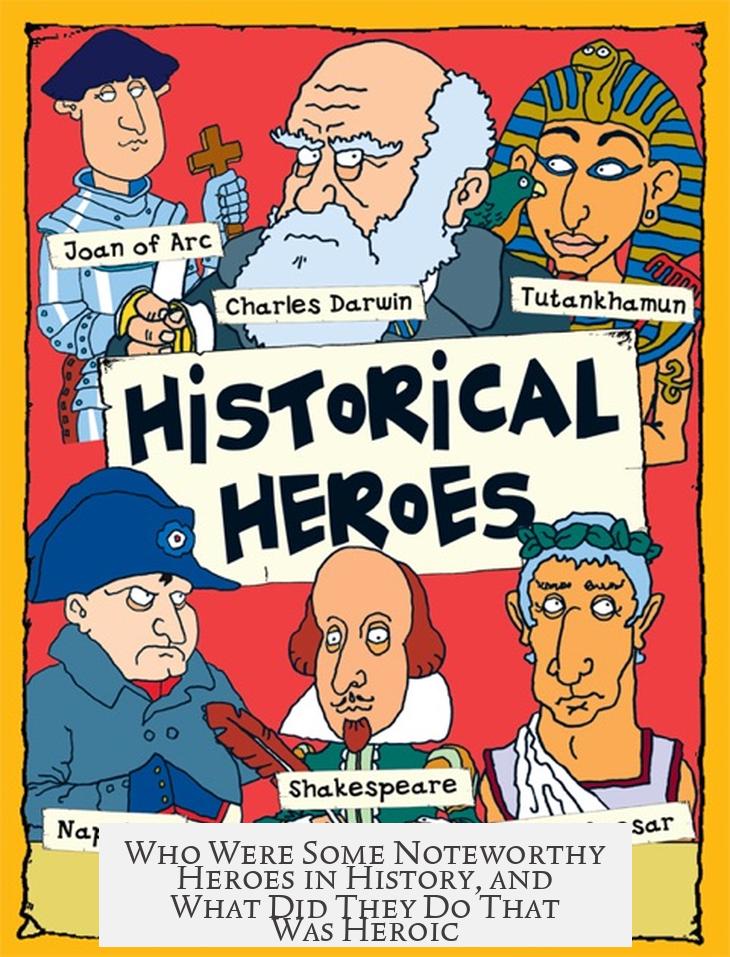
Heroes come in many shapes and sizes, and their stories often challenge what we expect from valor. From dying to protect seeds vital to humanity’s future, to risking all in battle, to making lone decisions that kept the peace—history is rich with deeds both grand and quiet. Who counts as a hero, and what exactly did they do that was heroic? Let’s take a stroll through some remarkable examples that blend courage, sacrifice, and intelligence in unforgettable ways.
The Scientists Who Starved for Seeds: Heroes of the Siege of Leningrad
Imagine facing starvation. Not just yourself, but your whole city is under siege by an enemy determined to choke off food. This was Leningrad during World War II, surrounded and starving for two long years. At the Russian Plant Institute, a treasure was hidden—the world’s largest seed bank. Seeds might sound boring, but to these scientists, they were the blueprint for future harvests, for food, survival, life itself.
The scientists locked themselves in a vault with this precious collection. They ate nothing. They starved slowly. Why? Because those seeds were Russia’s hope against famine after the war. They chose duty over life.
By 1980, a staggering 80% of Russian agriculture came from seeds preserved by those selfless souls. What heroism! They showed that sometimes, saving the future requires an ultimate sacrifice now. Would you give your life for something as unseen as hope?
Saif Al-Deen Qutuz: The Defiant Mameluke Leader Who Faced the Mongols Head-On
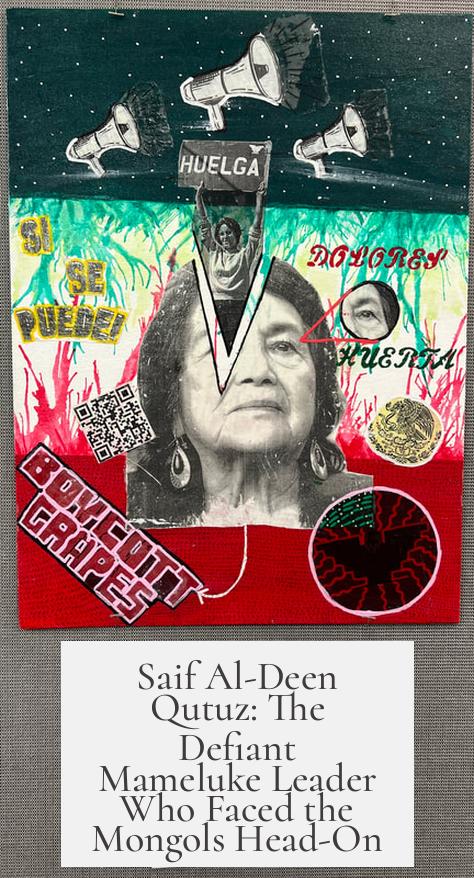
In the 13th century, the Mongol Empire was like a freight train of destruction, having razed Baghdad and Syria. Egypt, the last major Muslim power, stood alone. Enter Saif Al-Deen Qutuz, a leader refusing to kneel. When Hulegu Khan’s messengers demanded Egypt’s surrender, Qutuz executed them and hung their bodies publicly. Not subtle, certainly brave.
Then he rallied his people, imposing a war tax on the wealthy first—a leader leading by example. When the battle came, Egypt’s flanks wavered. What did Qutuz do? Threw off his helmet, shouted “For You, Oh Islam!” and charged into the fight himself, sword drawn, with his bodyguard. That’s leading from the front in the most literal way.
His political courage matched his battlefield bravery. Risking annihilation for honor and faith wasn’t for the faint-hearted. Would you dare to stare down what seemed unstoppable and say, “Not today”?
John Laurens: Early Advocate for Equality and Freedom
John Laurens, a figure from the American Revolutionary period, has a hero’s cred for an unusual reason: he formed the first all-black battalion with plans to grant freedom to its soldiers after their service. This was 18th-century America—hardly a time for progressive views on race.
Laurens died before realizing his vision, but his effort stood out. In an era when black people were denied basic rights, he fought to change that. This shows heroism isn’t just brute force on the battlefield; it’s vision, empathy, and fighting to change unjust systems.
How often do we celebrate heroes who challenge social norms ahead of their time?
Tecumseh: The Uniting Shawnee Chief Against the Invasion of His Land
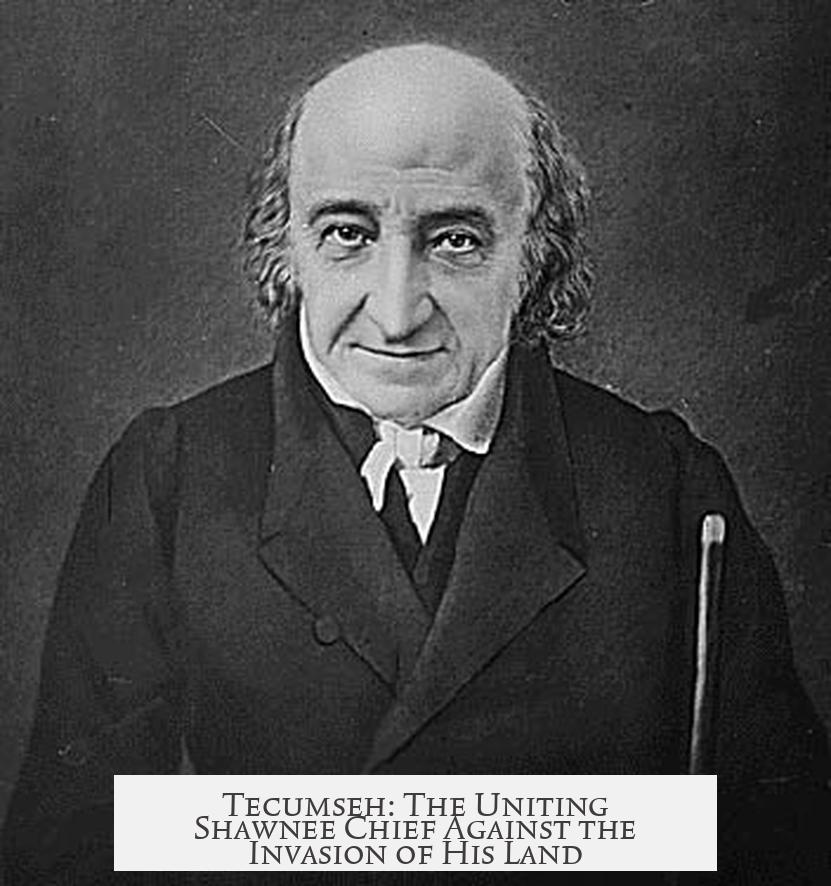
Tecumseh, born circa 1768, led a confederacy of First Nations tribes resisting American expansion. When the War of 1812 pitched the United States against Britain, Tecumseh allied with the British to protect his people’s land and way of life.
His story is about more than warfare; it’s about leadership and unity. Creating a confederacy among diverse groups with a common cause was a feat. Fighting for homeland, identity, and freedom makes him a hero of resistance and dignity.
Do we recognize these defenders of indigenous rights as the true heroes they are?
Stanislav Petrov: The Man Who Quietly Prevented Nuclear War
Imagine being the sole decision-maker with the fate of the world in your hands. On September 26, 1983, Soviet officer Stanislav Petrov received alarming signals of an incoming US missile strike. Orders were clear: retaliate immediately.
But Petrov did the unthinkable—he disobeyed protocol, judging the alarms false. His skepticism stopped what could have been a deadly nuclear war. No medals came immediately; no fanfare. Instead, he stayed quiet, the unnoticed hero who saved millions.
This story teaches us that heroism sometimes hinges on calm judgment and courage to act against orders when stakes can’t be higher. Would you keep your cool amid global chaos?
What Can We Learn from These Heroes?
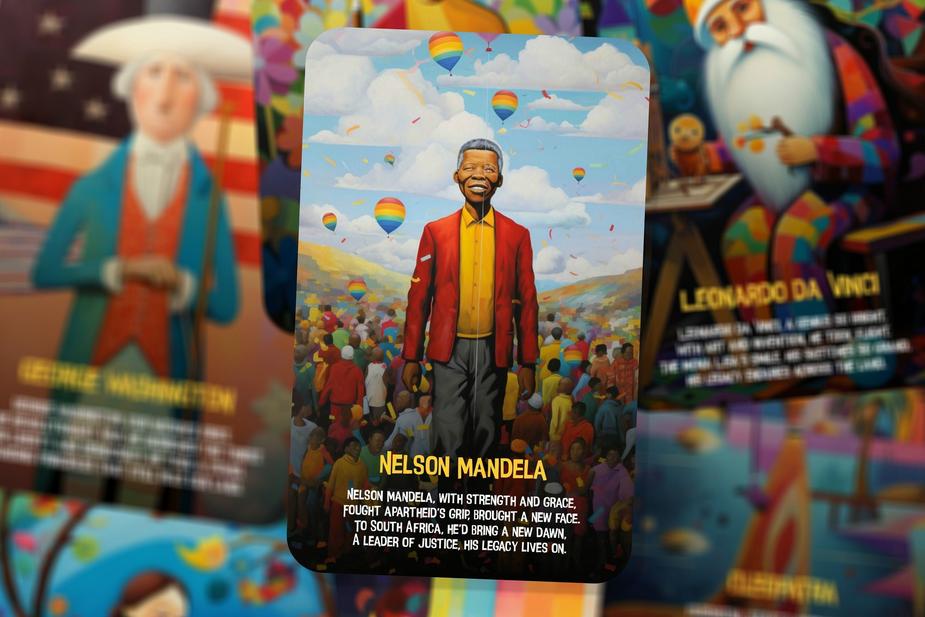
Theirs are very different tales but share threads that stitch a fabric of true heroism:
- Sacrifice for a Greater Good: Like the Leningrad scientists who endured death to save future food supplies.
- Courage in the Face of Overwhelming Odds: Qutuz charging into battle himself against the feared Mongols.
- Vision and Empathy: Laurens championing freedom in a society hesitant to grant it.
- Leadership and Unity: Tecumseh forming alliances to resist powerful invaders.
- Clear Judgment and Risk: Petrov preventing a nuclear disaster by trusting his instincts over orders.
These heroes teach us to evaluate courage not just by swords or bombs, but also by sacrifice, ideals, and choices that shape history. Their stories matter because they show us the power of individuals in shaping the world.
Can We Be Heroes in Our Own Ways?
Everyday life might not demand battlefield bravery or life-or-death choices, but we all face our own battles—ethical, social, environmental. Learning from these heroes means embracing responsibility, standing up for what’s right, even when the price is high.
Who inspires you the most from these stories? The silent sacrifice, the defiant warrior, the visionary reformer, the unifying leader, or the decision-maker who thinks twice?
Knowing their stories expands our definition of heroism and challenges us to be better. After all, history’s greatest heroes were once ordinary people who chose extraordinary acts.
